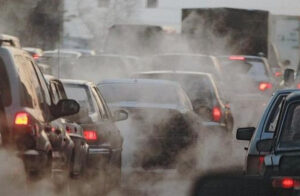
The adoption by the European Union of new carbon dioxide standards for cars and buses is postponed to a later date due to opposition from Germany, some other countries and the center-right wing of European lawmakers, the representative office of Sweden, which holds the EU Council presidency, said.
“The vote (originally scheduled for next week – IF) will take place at a later (EU) Council meeting,” the Swedish presidency said Friday, noting that no date has yet been set.
Last year, EU lawmakers and member state governments agreed that manufacturers must cut emissions from new cars by 55 percent by 2030 from 2021 levels and 100 percent in 2035. In effect, this means that sales of new cars that run on hydrocarbon fuels, such as petroleum products, will be banned.
Some countries, including Germany, have asked the European Commission (EC) to make an exception for cars running on “green fuel. It can be made from renewable energy sources and carbon emitted from the air. However, the EC is still silent.
The center-right European People’s Party (EPP), the largest faction in the European Parliament, opposes the ban and calls on the governments of the Union to do so.
The EPP’s chief negotiator on the issue, Jens Gieseke, motivated the conservatives’ position by the fact that the ban would hinder innovation, lead to the loss of thousands of jobs and the decline of a crucial European industry.
“The world will continue to drive cars with internal combustion engines. Our job is to make them as CO2-efficient as possible, not to ban them. Green fuels can help,” Gieseke said.
The European Greens are of a different opinion. Their leader in the European Parliament, Philippe Lambert, believes that this should not be a topic for further debate. Germany has already agreed to phase out internal combustion engines, and Brussels has already decided on this. Germany must remain a reliable European partner, he said in a statement sent to journalists.
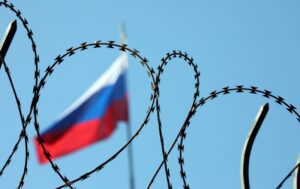
The European Union on Saturday, February 25, enacted the tenth package of sanctions against Russia, the EU press service said.
“The Council decided to introduce restrictive measures against 87 more individuals and 34 legal entities,” the text of the communiqué reads.
The list of restrictive measures includes Russian officials, military leaders, propagandists and, among others, the former general director of Motor Sich, Vyacheslav Boguslayev. He is on trial in Ukraine for treason.
In particular, the sanctions will affect such organizations as Alfa Bank, Rosbank and Tinkoff Bank, Commercial Automobiles – GAZ Group LLC, a number of Rosatom companies, Patriot media group, National Reinsurance Company, and Yevgeny Primakov, head of Rossotrudnichestvo, Russian Human Rights Commissioner Tatyana Moskalkova, Deputy Head of Moscow Region Government Vyacheslav Dukhin for deportation of Ukrainian children to Russia, surgeon Leonid Roshal, head of Russian Presidential Council for Civil Society and Human Rights Valery Fadeev, Rosatomflot enterprise, which operates the Russian nuclear icebreaker fleet, the Russian Defense Ministry, the Russian Foreign Intelligence Service, Kirill Kleimenov, Deputy General Director of Channel One, Alexander Akopov, Deputy General Director of National Media Group, and military commander Alexei Avdeev, Mikhail Teplinsky, military commander, Sergei Karakaev, Rossiya Segodnya media group and executive director Kirill Vyshinsky, Rossiya 24 chief executive Yevgeny Bekasov, Literaturnaya Gazeta chief executive Maxim Zamshev, Regnum agency chief Marina Akhmedova, and Sputnik news agency.
The sanctions also affected four Iranian citizens, including the managing director of the aerospace company Qods Aviation Industry.
The sanctions include an asset freeze, a ban on entry and transit through EU countries and a ban on citizens and companies in the EU providing funds to them.
“We will continue to increase the pressure on Russia for as long as necessary,” said Josep Borrell, head of EU diplomacy.
Source
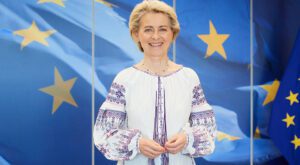
President of the European Commission, Ursula von der Leyen, once again says that the time frame for the start of negotiations on Ukraine’s accession to the European Union depends on the implementation of the necessary reforms.
She said at a press conference in Tallinn on Friday, answering a question from journalists that the entry process is a process that is evaluated on merit, and depends on the candidate country. And it’s amazing, according to her, to see Ukraine’s commitment to go through this process with incredible speed. She added that Ukrainians need to do a lot more, and it is impressive to see how they, fighting in the war, achieve results.
According to her, such results also indicate the functioning of the administration and an extremely high level of digitalization of the state administration, which is very impressive. Von der Leyen explained that it is in the hands of Ukrainians how they reform, how they improve the status of their country, and the European Commission supports them in it. She said that it is impressive to see Ukraine’s strong desire to join the EU, the desire to thoroughly reform their country at a time when they are fighting the aggressor. It’s in their hands, she added. Regarding the process, she announced that the European Union will have an oral presentation to the Member States in the spring of the progress achieved, but more important is the report in the fall, which will include all the candidate countries and their progress over the year.
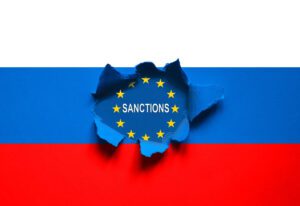
The Swedish presidency of the European Council officially announces the adoption of the tenth package of sanctions for Russia.
“A year has passed since Russia’s brutal and illegal invasion of Ukraine. Today the EU approved the 10th package of sanctions against Russia,” the presidency’s official Twitter page said.
It specifies that the package includes, for example, tougher export restrictions on dual-use and technology, targeted restrictive measures against individuals and entities that support the war, spread propaganda or deliver drones used by Russia in the war, and measures against Russian disinformation.
“Together, EU member states have imposed the most decisive and far-reaching sanctions in history to help Ukraine win the war. The EU is one with Ukraine and the Ukrainian people. We will support Ukraine for as long as it takes,” it said.

Ukraine belongs to the EU family, European culture and civilization and will definitely be a member of the European Union, European Union High Representative for Foreign Affairs and Security Policy Josep Borrell said.
“Ukraine belongs to the EU family and will be a member of the European Union. That’s for sure. After all that has happened, after the bombing and killing by Russia. The way they are coping. Ukraine’s future is in the EU. It will oblige us to change our procedural rules. It will change the size and diversity of Europe. Because if Ukraine becomes a member, many Balkan countries will want to do the same,” he said at the Munich Security Conference Sunday morning.
Borrell added that “the first homework assignment is to change the way we work.” At the same time, he stressed. that even before the war, Ukraine had numerous problems and the EU supported the country by investing in political and economic development.
The high representative of the European Union expressed confidence that Ukraine would cope with all the reforms quickly and the EU should support it. According to Borrell, the European Commission “has never before worked so fast.”
“Ukraine is a member of the EU, of the European family, of culture, of European civilization. It just has to be institutionalized. They have to do their homework, we have to help them. And we will prepare ourselves to take Ukraine to us,” Borrell said.
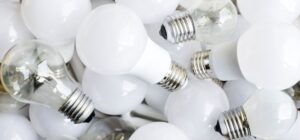
Ukrainians since January 31, the moment of start of the program on exchange of incandescent lamps on LED-lamps, received in “Ukrposhta” the first million of bulbs.
As the company reported in the press release on Saturday, thanks to the EU support the first 4 million bulbs were delivered to regional centers and major cities of the country, residents of Kyiv have already exchanged more than 162 thousand bulbs, residents of Kharkiv – more than 80 thousand, 88 thousand – Dnipro and 69 thousand – Lviv residents.
“The statistics we see are mainly people who came to the branches of “Ukrposhta” without pre-registration. Of course, during the week more people wished to exchange lamps: those who registered in “Diya” only from Wednesday began to receive confirmation of the exchange, some have already managed to come to the branch, and some will receive the lamps next week”, – described the situation by the general director of “Ukrposhta”. Igor Smelyansky.
He noted that next week it will be possible to exchange lamps in the branches of “Ukrposhta” in all cities, not only in the regional centers.
The company said that next week 6 million more bulbs will be available in the cities of district importance, and by the end of February due to the mobile branches of “Ukrposhta” the bulbs should go to the rural areas.
“Thus, at the first stage the citizens of Ukraine in the next month and a half will be able to exchange up to 20 million bulbs” – the company predicts.
According to previously announced estimates, the exchange of incandescent bulbs for 50 million LED-lamps will allow for a shortfall of about 1 GW. The EU will provide Ukraine with 30 billion bulbs, and another 5 million bulbs are expected from France.